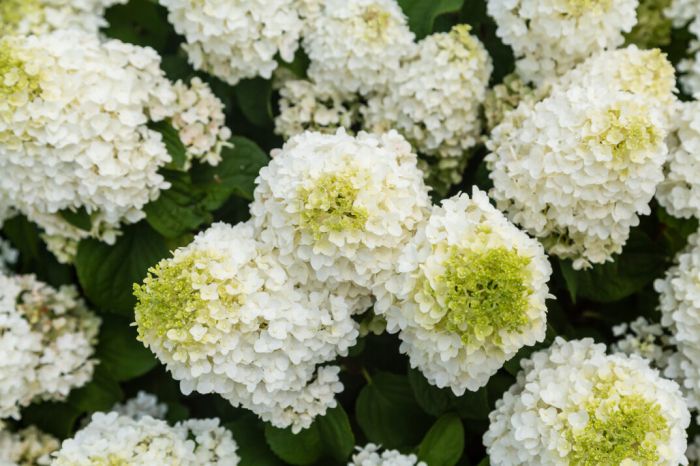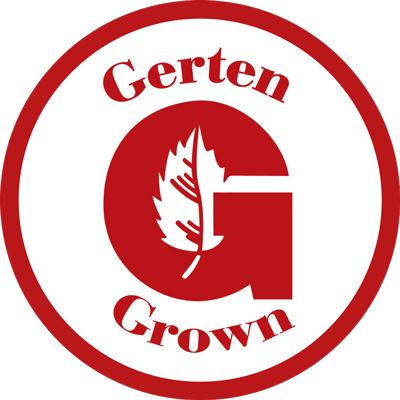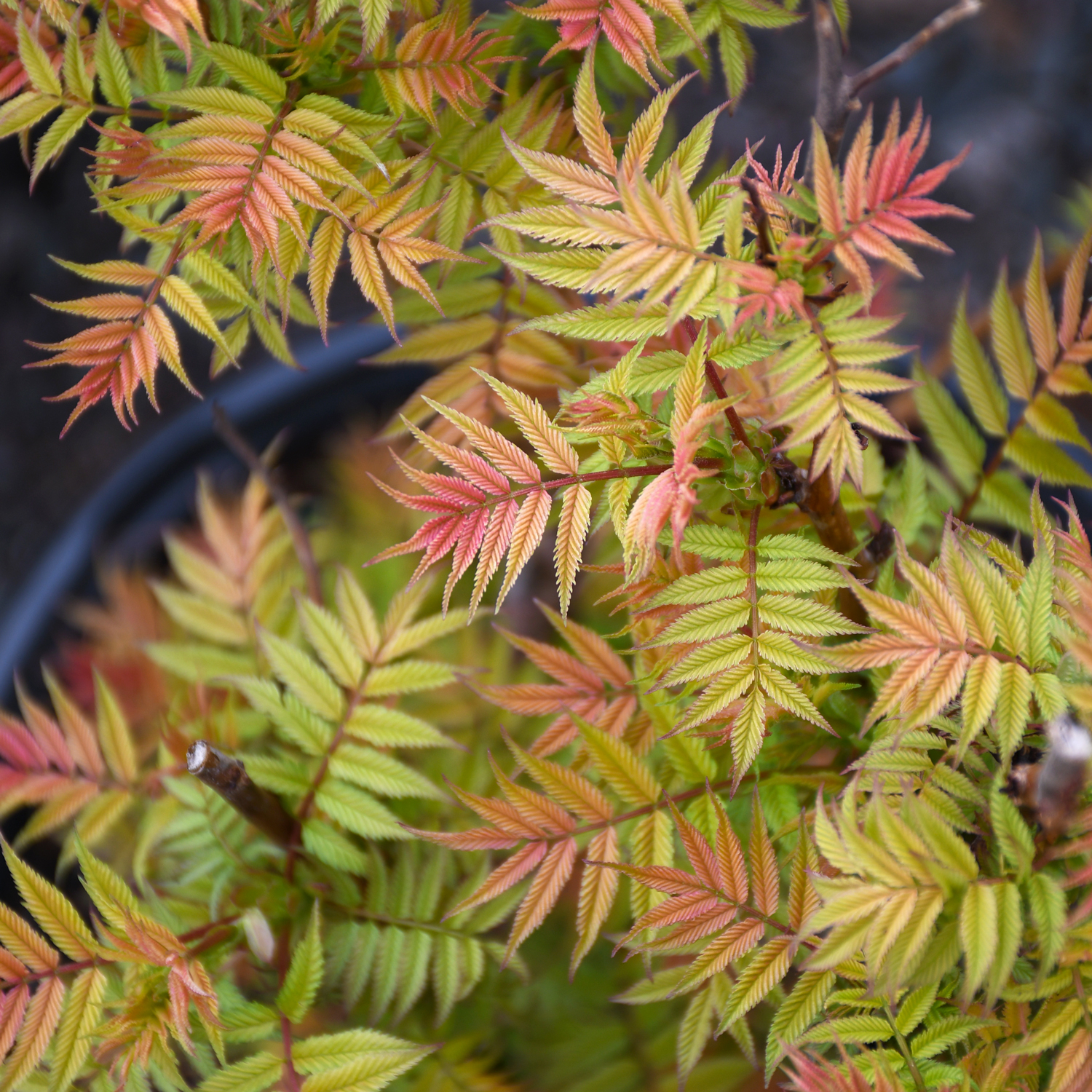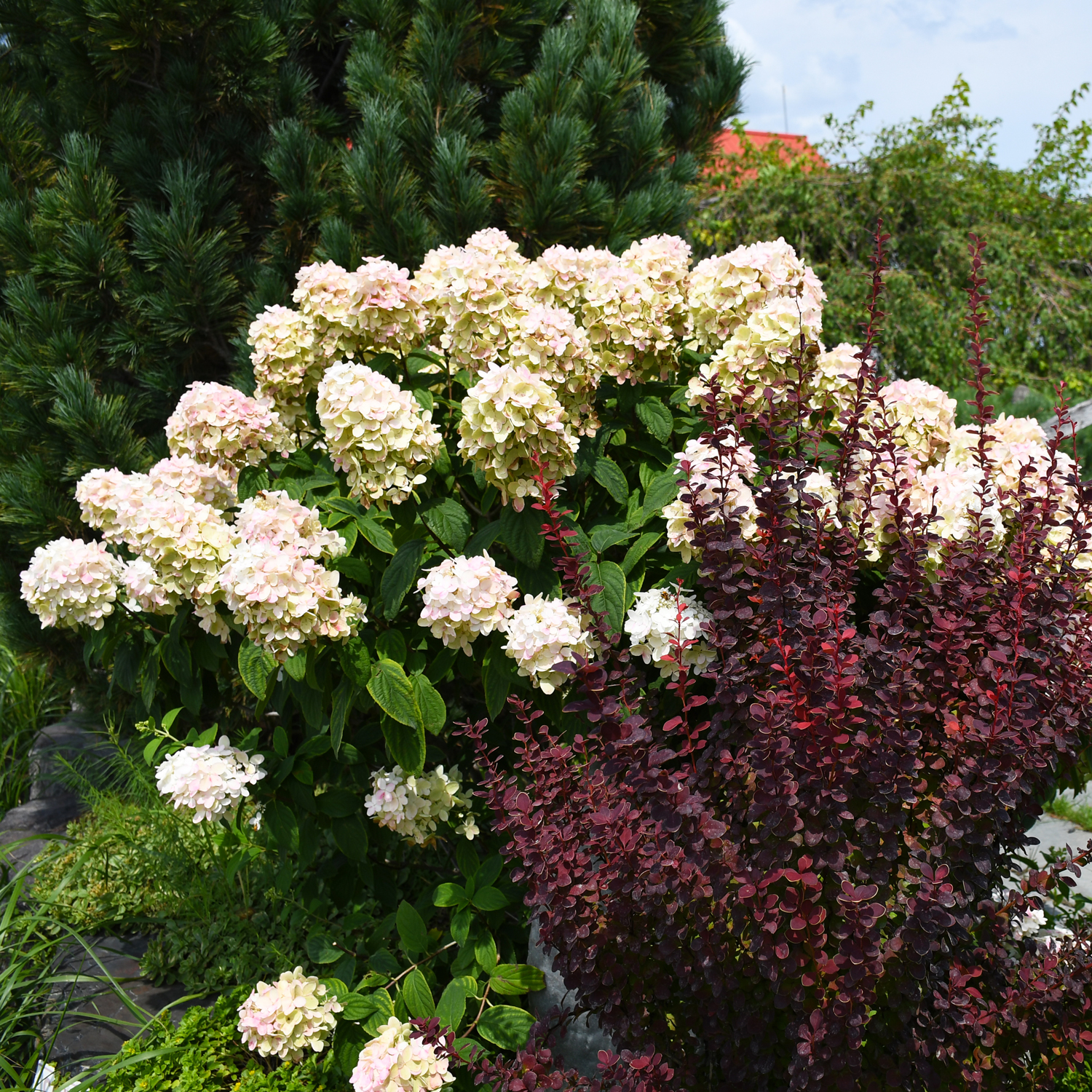Hydrangea, Panicle 'First Editions® Little Hottie®'




Out of stock
Sold out for the season- Sun Preference
- Full-Sun, Part-Sun
- Bloom Time
- June, July, August, September
Description
Well branched, compact plants produce abundant, large flower clusters that emerge lime green and turn to white. Handles hot weather well as the flowers hold their color nicely through the summer heat.
Minnesota's Largest Selection of Shrubs
Elevate your landscaping with Gertens' unmatched variety of shrubs! Selecting the right shrubs for your backyard can enhance its beauty and functionality. Consider factors like sunlight, soil type, and mature size when choosing shrubs. For sunny areas, flowering shrubs like roses or hydrangeas can add color and charm. In shady spots, opt for shrubs like azaleas or hostas. Evergreen shrubs provide year-round interest and privacy, while deciduous shrubs offer seasonal color changes. At Gertens, we offer a wide selection of shrubs to suit every backyard need.
Details
An instant garden favorite, Little Hottie® is a compact panicle hydrangea with brilliant white blooms that stand up to the warm summer sun without burning. Maturing to only 3’ – 5’ tall and wide, Little Hottie® is ideal for smaller landscapes where traditional panicle hydrangeas won’t fit. As evening temperatures drop in the fall, the petals turn antique shades of white and pink.
Hydrangea paniculata ‘Bailpanone’ | First Editions® Little Hottie™ Hydrangea PP32,549
Sunlight: full sun to partial shade
Zone: 3-8
Height: 3-5 ft
Width: 3-5 ft
Bloom Time: Summer - Fall
Bloom Color: White
Well branched, compact plants produce abundant, large flower clusters that emerge lime green and turn to white. Handles hot weather well as the flowers hold their color nicely through the summer heat.
More Information
| Gerten Grown Plants | Gerten Grown Plants |
|---|---|
| Available for Pre-Order | No |
| Bloom Time | June, July, August, September |
| Sun Preference | Full-Sun, Part-Sun |
| Mature Height (Range) | 2 - 5 feet |
| USDA Hardiness Zone | 3, 4, 5, 6, 7, 8 |
| Common Family Name | Hydrangea |


